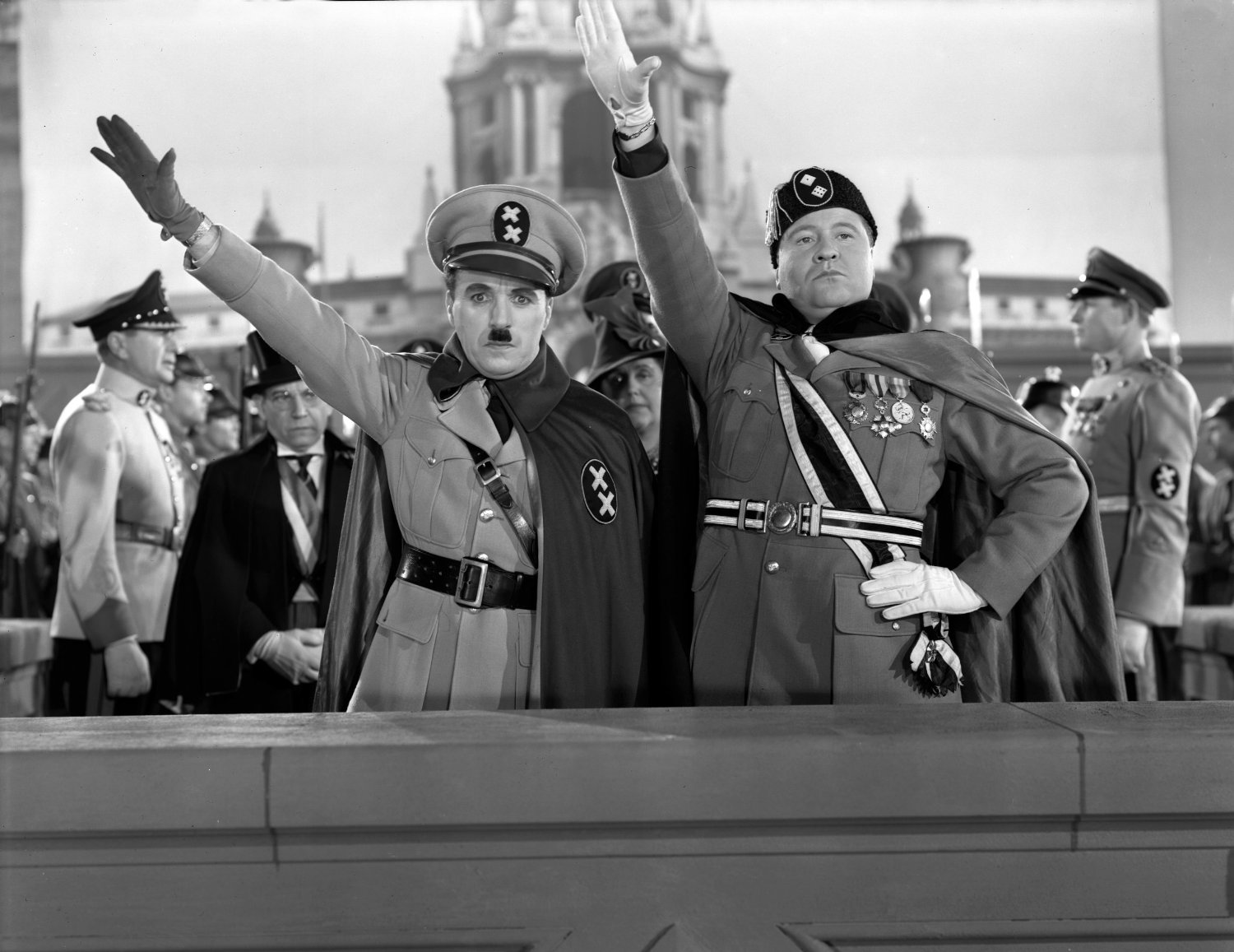Post originally written in April 2013. Images are not my own.
I've recently fallen in love with the artistry of Charlie Chaplin's work and am making my way through his masterpieces (all available online for free, although for some reason with Russian subtitles). The folks who are familiar with The Great Dictator likely know it for its passionate speech at the end, but apparently the film has historical significance. Filmed during the days of US neutrality, Chaplin was putting his head and his fortune on the line to make such bold statements about Hitler.
Chaplin has said that he would not have made a comedy about the Nazis had he known what horrors were taking place. Seeing it from our side of history, many of jokes fall flat thanks to the painful sting the images bring up, images like Jews being forced to scrub sidewalks or being lead into relatively jolly concentration camps. And as this is Chaplin's first major talkie,seeing him in the new medium takes some adjusting. But the humour is still highly entertaining, especially the fake German language that he concocted for the dictator, or the one upmenship contest between the dictator and his Italian peer, Napolioni. The humour is of all types, typical in a Chaplin film, from simple but perfect slapstick (plenty of paint thrown in faces) to a graceful and beautiful sequence of the dictator dancing with a balloon globe, gleeful at the thought of the world being his.
The plot centres around the fiery dictator, Hynkal, and his identical counterpart, a Jewish barber. Chaplin plays them both and their physical similarities drives much of the story and, for me, much of the movie's depth. Although the two look identical, initially their characteristics are foreign, one a fiery diplomat, the other a bumbling barber. But as the film progresses we start to pick up mannerisms in the dictator that bring him down to the level of the peasant (a slip or bungling social error). The barber, on the other hand, will do things like occasionally wield his sharp knife in a manner that makes you think he could do more then cut hair with it.
It's as if Charlie Chaplin was saying "I am not as far removed from either of these two characters as I would like to think. I have what's in me to rise to utter villainy, or I could settle to be a humble fool." It's only at the end of the film when the two characters receive the predictable flip-flop of being mistaken for each other that the director merge his two personalities. The humble fool rises from his collapsing chair and becomes the passioned statesman, giving his famous speech about looking up and fighting for the bright horizon. Although I disagreed with much of the speech's conclusions, it was hard not to be stirred by another stunning Chaplin ending.
Although the film was influential in turning the popular opinion of Hitler around, and was later used to boost war moral, it should not be considered propaganda, but a thoughtful and enjoyable piece of art to be enjoyed through many more changes of world order.



